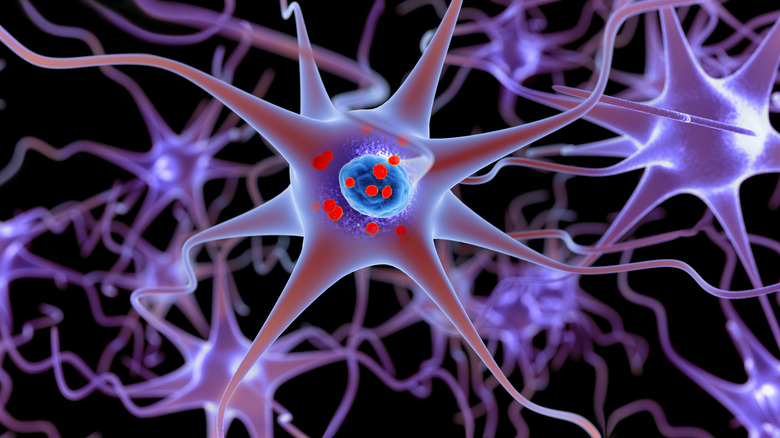Parkinson's Research Found A Potential Treatment Already Used For Cancer
As it stands, Parkinson's disease is currently incurable. It's also progressive, which means over time it gets worse and symptoms build up. Patients usually aren't diagnosed until later stages, when they start showing symptoms, which include stiffness, loss of balance, speech difficulties, tremors, and mental health issues, among others. Eventually, those suffering struggle to walk, speak, and function normally. Doctors and researchers attribute the disease to a loss of dopamine-producing neurons in the brain, related to a region called the substantia nigra, responsible for fine motor controls. That happens and Parkinson's spreads because of Lewy bodies – abnormal protein clumps, made of misfolded alpha-synuclein, that build up in neurons and displace other cellular components. That spread is what causes the progression, but scientists may have found a way to stop it.
Thanks to previous research, they know that two other proteins, Lag3 and Aplp1, work together to help the toxic alpha-synuclein clumps spread into brain cells. During that research, they learned that deleting Lag3 can impede the process, slowing it but not preventing it. The results helped them understand Lag3 wasn't the only protein responsible for aiding the spread of toxic alpha-synuclein. As a follow-up, they also focused on Aplp1, conducting tests with genetically modified mice that were missing one or both of the proteins. To make it work, they used a drug that's already FDA-approved for cancer, called nivolumab/relatlimab, which contains a Lag3 antibody. They discovered they can influence how the two proteins interact with each other, which may someday lead to a preventative treatment. It's interesting this involves a repurposable drug, like what could potentially lead to an Alzheimer's cure, according to another study. We had a solid or viable treatment already. We need further research to understand if and how it works.
Understanding the results of the study
In the genetically modified mice missing both Lag3 and Aplp1 proteins that were given the medication experienced a 90% decrease in the spread of the harmful alpha-synuclein cells. And in normal mice, it stopped both proteins from interacting, nearly blocking the disease-causing alpha-synuclein clumps. Of course, this is only the initial testing and exclusively with mouse models, we're a long way from human testing, if the potential treatment reaches that stage. It means that a lot more trials need to happen, and further evidence will need to point to whether blocking the Lag3 and Aplp1 truly stops the spread of the harmful cells in the brain.
But overall, this is good news, and it's inspiring, to say the least, that could point to a proper treatment for Parkinson's, if not an outright cure. This is not the only research being done in this regard. Scientists also recently discovered "Super Stem Cells," which can transform into better versions of themselves. Because they remain healthy for longer and are regenerative in nature, they could treat conditions like Parkinson's where harmful cells are taking over. It follows the same principle of potentially reversing aging, according to science. Cellular reprogramming, zombie or harmful cell cleanup, stem cell infusions, or in the case of Parkinson's, an existing drug that can block naturally occurring cell reactions like the spread of alpha-synuclein.

